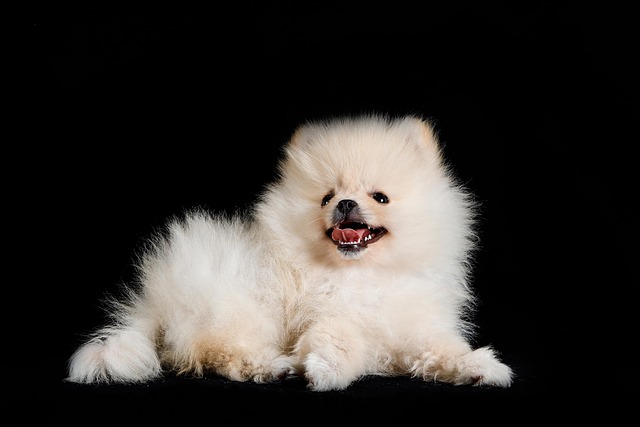
How to test for tetanus in dogs?
Tetanus in dogs often starts with subtle signs most owners miss—like a stiff jaw when grabbing a favorite chew toy or hesitation to climb stairs they once bounded up.
You've probably seen those viral videos of dogs tolerating toothbrushes, right? Honestly, they made me feel guilty for years. Every time my old retriever, Baxter, ducked away from the brush, I'd wonder if I was failing him. But here's what changed my perspective: a frank talk with my vet after Baxter developed gingivitis despite my sporadic brushing efforts. Turns out, the relentless push for daily dog teeth cleaning might be oversimplifying a complex issue. It's not that dental health isn't crucial – it absolutely is – but the rigid "brush every day or else" mantra doesn't fit every dog or every owner's reality.
Think about why we stress canine dental care. Plaque buildup isn't just about bad breath; it's a gateway to painful periodontal disease, tooth loss, and even systemic issues affecting the heart and kidneys. Small breeds like Yorkies or Dachshunds are especially prone, often showing significant tartar by age three. Veterinarians recommend daily brushing because it mechanically disrupts plaque before it hardens. Makes sense on paper. Yet, forcing a terrified terrier into a nightly brushing battle creates stress for both of you, potentially damaging your bond. Is that truly necessary for every single dog? Recent research suggests maybe not.
Actually, the science behind universal daily brushing is less absolute than you might think. A pivotal study published in the Journal of Veterinary Dentistry tracked dogs receiving only weekly brushing combined with dental chews. Guess what? Their periodontal scores were comparable to the daily brushing group after six months. Key veterinary bodies like the American Veterinary Dental College now emphasize that effective plaque control, not necessarily daily frequency, is the true goal. Factors like your dog's genetics, diet, saliva composition, and existing oral health play massive roles. For some dogs, particularly those with resilient teeth or low plaque formation, obsessing over missing a day might be misplaced energy. The necessity of dog teeth cleaning hinges more on effectiveness than rigid daily adherence.
So, if daily brushing feels impossible or counterproductive, breathe easy. Several alternative dog dental care methods pack a serious punch. Dental chews approved by the Veterinary Oral Health Council (VOHC) are fantastic – they work mechanically as your dog gnaws. Water additives are a simple "set it and forget it" option, fighting bacteria with every sip. Don't underestimate diet either; specially formulated kibble designed to scrape teeth as they chew can be remarkably effective. And yes, professional cleanings under anesthesia remain the gold standard for removing stubborn tartar, typically needed annually for most dogs. Combining these approaches often yields better results than a stressful, half-hearted brushing session you both dread.
Tailoring dental care to your dog's needs is where the real magic happens. Start by lifting those lips! Check for red gums, brown tartar, or broken teeth – signs you need to step up care. Consider your dog's specifics: a brachycephalic breed like a Pug faces different risks than a Greyhound. Age matters too; seniors often need more support. Lifestyle counts – does your dog love chewing antlers (great for teeth!) or prefer soft food (less helpful)? Be honest about your own capacity. If daily brushing isn't sustainable, committing to water additives plus bi-weekly brushing plus quarterly dental chews might be your perfect, realistic balance. The goal is consistent, manageable care, not perfection.
Practical tips? Begin with what works. Try rubbing toothpaste (dog-specific, please!) onto their teeth with your finger if a brush is scary. Offer VOHC-approved chews several times a week – look for textures that encourage chewing. Add that water additive to their bowl; it takes seconds. Schedule regular vet check-ups to catch issues early. Crucially, observe your dog. If their breath stays relatively neutral and gums look pink, your routine is likely working, even without daily brushing. Remember, caring for dog teeth without brushing constantly is entirely possible when you leverage the right tools strategically.
Ultimately, the dog teeth cleaning necessity question isn't a simple yes or no. It's a resounding "Yes, dental care is vital," but a flexible "No, daily brushing isn't the only valid path for every dog." Informed decisions beat rigid rules. Pay attention to your dog's mouth, explore the alternatives, and find a sustainable routine that keeps their tail wagging – and their teeth healthy. Always partner with your vet; they know your dog's unique needs best. Baxter taught me that effective care is about smart choices, not just checking a daily box.

Tetanus in dogs often starts with subtle signs most owners miss—like a stiff jaw when grabbing a favorite chew toy or hesitation to climb stairs they once bounded up.

If you’re a new dog parent in the US—maybe you’re standing in your Ohio apartment’s pet store aisle, holding a bag labeled “senior dog food” while your 8-year-old Dachshund

If you’re a new dog parent to a senior pup in the US—maybe you’re standing in your Florida apartment’s pet food aisle

Pet owners often worry about hidden health risks for their dogs, and toxoplasmosis is one that flies under the radar for many—understanding how dogs pick it up is key to keeping them safe.

If you’re a new dog parent in the US—maybe you’re standing in your Chicago apartment, staring at your 7-month-old Poodle mix, Bella

Tetanus in dogs comes from bacteria entering open wounds—think a deep cut from a rusty fence nail during a walk, or a scraped paw from digging in contaminated soil.